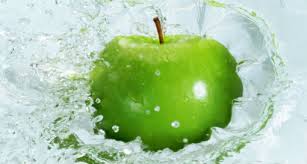记忆方法
将“fresh”与“new”(新)和“free”(自由的)结合记忆。想象新鲜的事物(如水果)是自由地从源头(new)获得的,因此保持清新(fresh)。这种方法通过联想新与自由来帮助记忆单词的含义。
以上内容由AI生成, 仅供参考和借鉴
中文词源
fresh 新鲜的,淡水的
来自PIE*preisk, 新鲜的,有活力的,进一步来自PIE*preu, 蹦,跳,词源同frog, frolic. 并由此引申诸多词义。
英语词源
- fresh
-
fresh: [12] Fresh is of Germanic origin, but in its present form reached English via French. Its ultimate source was the prehistoric Germanic adjective *friskaz, which also produced German frisch, Dutch vers, Swedish färsk, and possibly English frisk [16]. It was borrowed into the common source of the Romance languages as *friscus, from which came French frais and Italian and Spanish fresco (the Italian form gave English fresco [16], painting done on ‘fresh’ – that is, still wet – plaster, and alfresco [18], literally ‘in the fresh air’).
English acquired fresh from the Old French predecessor of frais, freis. The colloquial sense ‘making presumptuous sexual advances’, first recorded in the USA in the mid 19th century, probably owes much to German frech ‘cheeky’.
=> alfresco, fresco, frisk - fresh (adj.1)
- c. 1200, fresh, also fersh, "unsalted; pure; sweet; eager;" the modern form is a metathesis of Old English fersc, of water, "not salt, unsalted," itself transposed from Proto-Germanic *friskaz (cognates: Old Frisian fersk, Middle Dutch versch, Dutch vers, Old High German frisc, German frisch "fresh"). Probably cognate with Old Church Slavonic presinu "fresh," Lithuanian preskas "sweet."
Sense of "new, recent" is from c. 1300; that of "not stale or worn" is from early 14c.; of memories from mid-14c. The metathesis, and the expanded Middle English senses of "new," "pure," "eager" probably are by influence of (or from) Old French fres (fem. fresche; Modern French frais "fresh, cool"), which is from Proto-Germanic *frisko-, and thus related to the English word. The Germanic root also is the source of Italian and Spanish fresco. Related: Freshly. Fresh pursuit in law is pursuit of the wrong-doer while the crime is fresh. - fresh (adj.2)
- "impudent, presumptuous," or as Century Dictionary puts it, "verdant and conceited," 1848, U.S. slang, probably from German frech "insolent, cheeky," from Old High German freh "covetous," related to Old English frec "greedy, bold" (see freak (n.2)).
权威例句
- 1. Fresh fruits and vegetables are important and so is bran.
- 新鲜的水果和蔬菜很重要,麦麸也是。
- 2. Grate a tablespoonful of fresh ginger into a pan.
- 磨碎一汤匙鲜姜,放入平底锅。
- 3. I tend to stick to fresh fruit for pudding.
- 我一直坚持用新鲜水果做甜点。
- 4. Garnish the plate with whipped cream rosettes and fresh fruits.
- 用玫瑰花形的掼奶油和新鲜的水果作配菜点缀盘子。
- 5. Ancient civilizations believed in the curative powers of fresh air and sunlight.
- 远古文明相信新鲜的空气和阳光有治病的功效。
